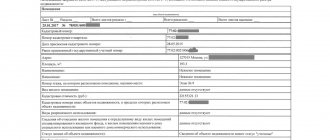Barter agreement
Barter is an action that involves exchanging a privatized apartment for a privatized one, both without additional payment and with a possible additional payment by one of the parties, depending on the terms of the agreement.
One way or another, barter allows you to deal with the housing situation much faster and achieve the desired result.
As you know, a barter agreement, like any other agreement, has its own nuances, which will also need to be discussed separately.
Here you can download the most popular samples:
- Standard barter agreement;
- Agreement for the exchange of equivalent apartments;
- Contract for the exchange of residential buildings with additional payment.
Read more about drawing up an exchange agreement here.
Exchange procedure
The entire procedure for exchanging apartments comes down to a series of sequential actions:
- To ensure the purity of the transaction, first of all you need to decide on the price of the apartment. The price of a property is one of the essential terms of the contract and should ideally be supported by documents, for example, an appraiser’s report on the market value of the property.
- The second stage is associated with the preparation and verification of documents by the parties to the contract.
- Concluding an exchange agreement. If there are special reasons, the agreement must be notarized.
- Making payment. If an advance payment is required under an exchange agreement, as a rule, it is made before the transaction is registered.
- Transfer of a package of documents, including contracts and applications to Rosreestr. Let us remind you that both parties to the transaction must be present.
- Registration of ownership of an apartment. You can register ownership of a new property received under an exchange agreement in Rosreestr. The package of documents is provided directly to the registration authority or to the MFC.
- State registration of a real estate transaction is confirmed by the issuance of an extract from the Unified State Register to applicants. This means that the apartment has passed to new owners.
Underwater rocks
Of course, such a procedure as an exchange cannot take place completely without nuances and difficulties. It would seem that here is a privatized apartment and its direct owner - and this means that he has the right to do absolutely whatever he pleases with this living space.
But actually it is not. In addition to the fact that the owner is still slightly limited in his rights, he also needs to prove the fact that he really is the owner. All legal documents of the person are required for submission.
It is also worth remembering that the owner cannot exchange residential for non-residential property , do redevelopment before the exchange, and so on.
Remember! Exchanges can only be made with the direct owner of a specific residential premises.
Read about how a barter agreement differs from other types of agreements here.
Exchange with surcharge
An important condition of the exchange agreement is the equivalence of the objects.
Often it is impossible to achieve actual equivalence, so an exchange agreement implies an additional payment for one of the parties. The exchange of an apartment with an additional payment can be carried out through an alternative transaction and a purchase and sale agreement can be concluded. In this case, the exchange of an apartment with an additional payment occurs according to the following scheme:
- Concluding a purchase and sale agreement: simultaneous sale and simultaneous purchase of an apartment that you have chosen in advance as an apartment for exchange.
- Simultaneous registration of contracts for transfer of ownership.
Such transactions are no different from concluding a regular residential purchase and sale agreement. The recipient of the surcharge will also have to pay personal income tax, and the person who pays the surcharge has the right to receive a tax deduction next year, but only if they have owned the property for more than 3 years.
How to exchange?
There are several options for exchanging a privatized apartment. It all depends on which option is right for you.
Let us remind you once again what privatization of an apartment means.
Your apartment is considered privatized if you have gone through the appropriate procedure, during which you were given a certificate of ownership.
You should also remember that the very fact of privatization is reflected in the relevant documents in Rosreestr and from there you need to take an extract from the Unified State Register if you are seriously thinking about the exchange.
Privatized to municipal
If exchanging a privatized apartment for a non-privatized one suits you, then it is worth drawing up an exchange agreement , followed by registration of privatization in your name.
Unfortunately, often due to confusion in the administrative apparatus, many people manage to draw up an exchange agreement only unilaterally, while municipal property turns out to belong to someone by right of ownership and the failed parties to the agreement are simply wasting their time.
Municipal real estate must be transferred into your ownership on the basis of one of the clauses of the exchange agreement, and relevant documents must be submitted to a specially formed commission within the city administration that would automatically make you the direct owner.
You must know how to make a related exchange of privatized apartments. This term is not defined by law, so the exchange must be carried out on a general basis.
Two privatized apartments
Before exchanging a privatized apartment for a privatized one, you should check the ownership documents of the other party to your agreement.
If everything is in order with the documents, then the exchange of a privatized apartment can be carried out in two ways.
- In the office of a notary with the provision of all necessary title documents.
- If you trust your opponent, then you can carry out the exchange procedure for free, without the services of a notary , showing up with concluded agreements, supposedly a sale and purchase between the parties.
Your new property is duly registered in Rosreestr and you are now the full owner of the new property.
Is it possible to exchange a non-privatized apartment?
Unfortunately, if the apartment is not privatized, then you cannot carry out actions to exchange it for a privatized one.
To begin with, you need to simply take ownership of the property, that is, go through the privatization procedure .
Therefore, if you have been postponing this registration for later, take this action immediately, because the free privatization of the apartment has been extended for 1 year; in 2021, such a procedure will be paid and perhaps some will not be able to afford it.
Now you know that you cannot exchange an apartment in any way if it is not privatized.
Read about how the real estate share exchange agreement works here.
Features of exchanging a privatized apartment
Since the apartment is registered as a property, all owners can dispose of it at their discretion. The sizing process can be carried out after allocating a share to each co-owner, after which they sell or exchange their parts of the property.
It is also possible to completely change the entire apartment to other objects, but this process is accompanied by difficulties due to the fact that it is difficult to find other suitable apartments for the process.
How to change an apartment? Tips in the video:
What rights do owners have?
The apartment may be in joint or shared ownership, but each owner has the right to dispose of some part of it. It is optimal to make a decision on the need for exchange jointly, which will allow this process to be carried out peacefully.
The procedure for exchanging a privatized object can be performed using two methods:
- Sale of shares or the entire apartment.
For this purpose, the property is put up for sale. When a buyer is found, all co-owners sign the contract. The amount received from the process is divided among citizens based on their shares. Next, each person independently decides where these funds will be sent. - Exchange of housing. The process consists in choosing the best options for other real estate for each owner. The exchange agreement involves the exchange of real estate for other apartments. This usually requires additional payment from citizens.
How can I obtain a certificate of state registration of ownership of real estate? See here.
The second option is considered complicated, since it takes a long time to look for options for exchange.
Legislative regulation
All information about the exchange rules is indicated in the LCD. The Civil Code contains data on what rights the owners of a privatized apartment have. It is indicated that it is not always possible to exchange objects.
Procedure
In order to directly exchange a privatized apartment, you need to perform a number of consistent and important actions.
- Read the proposal of the other party to the future contract.
- Study not only the new living space, but also the documents that come with it.
- Check whether the person really is the owner of this real estate and whether all his relatives agree with such a decision on the exchange.
- Next, collect a package of necessary documents, carefully making copies of them.
Remember that the documents will have to be reviewed not only by Rosreestr employees, but also by the other party to the exchange agreement, and possibly also by the notary. Therefore, there should be enough copies for everyone . - First, inquire about ways to achieve the desired result during the exchange, or better yet, consult with a lawyer and delve into the legislation. Pay special attention to the housing and civil code of our country.
Now let's talk about what exactly should be in your package of documents.
Collection of documents
The presence of all necessary documents is the key to success in drawing up any agreement, including an exchange agreement.
Don't forget! You need to be very attentive and thorough when collecting papers, because only your accuracy can contribute to an earlier and positive resolution of the issue.
- The first and most important document in your arsenal should be your passport .
Make a number of copies from it. Both the notary and the other party to the contract will need it in order to verify that you are the owner of the privatized apartment. - Another important document is a certificate of ownership of real estate, in our case, an apartment.
Such a title document is required for consideration, because it is it that proves that you have the right to dispose of your property as you want. - Don’t forget to provide the technical passport of the apartment (read how to order from the BTI), as well as the cadastral passport (if you don’t have it, you can order it from the MFC).
They will immediately reflect whether you have carried out redevelopment or other actions with the apartment that you were allowed or prohibited by the administration. - If you actually carried out the redevelopment based on the permission of the administration, also attach the relevant documents.
- real estate exchange agreement with the other party This can be done with the help of a notary or lawyer.
- It is mandatory to provide written consent from all persons living with you in the apartment for this exchange action. Otherwise, if one of the residents is dissatisfied, the transaction will be declared invalid.
- Also, if the privatized apartment is in shared ownership, it is necessary to provide documents identifying the second owner .
- Don't forget to pay the state fee . A receipt confirming your payment must also be included in the package of documents.
Types and rules of exchange
The procedure depends on various factors, so you must first study information from legal acts in order to avoid any violations and errors.
Features of the exchange agreement.
To a privatized facility
The exchange of a privatized apartment is carried out taking into account the rules:
- exchange is permitted only for another privatized object;
- the owners themselves can choose the optimal agreement for executing the transaction, so they can exchange the entire apartment or only parts belonging to each person individually;
- before selling a person’s share under Art. 250 of the Civil Code must offer part of the housing to other co-owners;
- if other owners refuse to buy the share, they must formalize such a decision in written official form, and the document is certified by a notary.
Article 250. Pre-emptive right to purchase
1. When selling a share in the right of common ownership to an outsider, the remaining participants in shared ownership have the pre-emptive right to purchase the share being sold at the price for which it is sold, and on other equal conditions, except in the case of a sale at public auction, as well as cases of sale of a share in the right of common ownership of a land plot by the owner of a part of a building or structure located on such a land plot or by the owner of premises in the specified building or structure.
Public auctions for the sale of a share in the right of common ownership in the absence of consent of all participants in shared ownership may be held in the cases provided for by part two of Article 255 of this Code, and in other cases provided for by law.
2. The seller of a share is obliged to notify in writing the other participants in shared ownership of his intention to sell his share to an outsider, indicating the price and other conditions under which he sells it.
If the remaining participants in shared ownership do not acquire the sold share in the right of ownership of real estate within a month, and in the right of ownership of movable property within ten days from the date of notification, the seller has the right to sell his share to any person. If all other participants in shared ownership refuse in writing to exercise the pre-emptive right to purchase the share being sold, such share may be sold to an outsider earlier than the specified deadlines.
The specifics of notifying participants in shared ownership of the intention of the seller of a share in the right of common ownership to sell his share to an outsider may be established by federal law.
3. When selling a share in violation of the pre-emptive right, any other participant in shared ownership has the right, within three months, to demand in court the transfer of the rights and obligations of the buyer to him.
4. Assignment of the pre-emptive right to purchase a share is not permitted.
5. The rules of this article also apply when alienating a share under an exchange agreement.
Important! Co-owners must be offered a price for the share at which it will be sold to other persons.
To a non-privatized apartment
This process is considered complicated, since the owner of the property is the municipal authorities. Exchange is also allowed for non-privatized objects and with the permission of the authorities, and it is the municipality that is often involved in the selection of suitable objects.
What is an apartment exchange and when can it be done? Answers at the link.
This is usually permitted if there are truly compelling reasons why people cannot live together in the property. The best way out in this situation is considered to be the initial privatization of the object, after which each owner decides what he will do with the allocated part.
For municipal housing
It will not be possible to exchange a privatized apartment for an object that is municipal, since its owner is represented by regional authorities. This is due to the fact that residents are not owners of housing, and therefore cannot independently manage it.
It is allowed, with the participation of the municipality, to exchange non-privatized apartments. To do this, you must additionally obtain consent from all citizens registered in the facility. If there is no permission for the process from municipal authorities, then the exchange will be declared invalid.
Without the owners' consent
If one of the owners of a privatized apartment is against the exchange, then it is impossible to force the process without his consent. This is not allowed even if the citizen’s behavior is illegal or immoral, so it is simply impossible to live with him in the same living space.
How to privatize an apartment?
The only way out of this situation is to sell shares. To do this, you must first offer part of the property to other co-owners.
With registered citizens
The procedure involves changing the owner of the property, so all people who are registered in such an apartment lose the right to live in it. But at the same time, there are some citizens whom even the new owner cannot discharge.
These include:
- minors;
- dependents;
- people who voluntarily abandoned the privatization process.
These citizens must be indicated in the contract. Such people can only be evicted through the courts, and usually such cases are obviously losing.
In case of divorce
If the exchange is made by former spouses, then it is taken into account that the apartment is joint property, so it is first divided. The shares must be equal unless there are marriage contracts or other grounds for unequal division.
How can you exchange a municipal apartment through the court? Details here.
Separation is carried out through the court or when drawing up a peace agreement. Afterwards, the property is sold and the funds are divided, and you can also exchange for two different smaller apartments with an additional payment.
Implementation of the process between relatives
It doesn’t matter who the co-owners of the apartment are to each other. For such an exchange, general rules are used, but the difference is that if relatives buy shares from each other, then they do not need to pay personal income tax on the income.
Exchange with minors
If a child is registered in the apartment, then permission from the guardianship authorities will be required to carry out the process. In this case, there must be evidence that the baby will be moved to better real estate.
How to exchange an apartment for a house or new building? Watch the video:
Forced exchange through court
Sometimes apartment residents are against the owner's decision to exchange. This often happens during divorce. In this case, the owner of one of the apartments goes to court , where, through judicial proceedings, he proves why the exchange should take place.
It is impossible to force the exchange of a privatized apartment through the court until all homeowners give consent.
Exchanging a privatized apartment is not at all difficult if you are well acquainted with the sequence of all actions. Remember that an exchange, first of all, is an action that entails a change in your rights, so take this procedure as seriously as possible and, if possible, consult with a lawyer.
Apartment exchange process
Let us remind you that only privatized apartments are subject to exchange; exchange is possible between non-privatized apartments. But the Housing Code of the Russian Federation does not allow the exchange of a privatized (private) apartment for a municipal one.
The process of exchanging apartments, like completing any transaction, comes down to collecting the necessary documents. When we talk about legal transactions, the first question that arises is their legality. The exchange agreement is legal if the rights of all persons related to the apartment as the owner are respected. Before concluding a contract, you need to prepare a number of important documents regarding the apartment:
- appraiser's conclusion on the market value of housing;
- certificate of ownership and/or other documents on the basis of which it is possible to establish the legality of ownership of an apartment or a share in it;
- an extract from the house register;
- cadastral passport;
- extract from the Unified State Register.
These documents are important for the parties precisely at the stage preceding the signing of the exchange agreement. The parties must check the purity of the transaction by identifying the owners of the apartment, because Apartment exchange is possible only with the consent of all owners. If one of the owners of the apartment is a minor, in particular a child under 14 years of age, then his interests in the transaction are represented by one of the parents or another legal representative.
The second package of documents will be required to register the transaction; it is submitted to Rosreestr and includes:
- receipt of payment of the state fee for registration;
- signed copies of the agreement;
- a statement from each party requesting to register the transfer of ownership from one person to another;
- identification documents of all signatories of the exchange agreement;
- a document confirming ownership of the apartment, share in the apartment;
- consent of the spouse to conduct the transaction;
- consent of the guardianship/trusteeship authority, passport details of the legal representative, birth certificate, if the party to the transaction is a minor;
- other documents prepared by the parties at the contractual stage.
Exchange by court order
Quite often, cases arise when it is impossible to obtain consent to an exchange from one of the owners or registered persons. These may be personal reasons, a person’s reluctance to change their place of residence. Often the owner simply cannot find contacts and obtain consent, without which the exchange agreement is considered illegal. What then?
An exchange based on a court decision is called forced. Forced exchange can only be implemented in relation to municipal housing. If the apartment is owned, then the shareholder can apply to the court with a request to allocate the share due to him in kind.
The court makes a decision in which it decides to carry out the exchange even without the consent of any of the persons registered in it, if we are talking about a municipal apartment. In this case, you need to go to court and file a claim for forced exchange of living space. The claim is filed in the district court at the place of residence of the defendant.
If you found this page useful, please recommend it to your friends:
How to insure yourself?
Lawyers recommend not to rely on the integrity of the other party. Record your every step with documentary evidence.
Expert opinion Dmitry Nosikov Lawyer. Specialization: family and housing law.
For example:
- If the buyer offers to pay an advance, enter into an advance agreement (preliminary) with him. Write down the condition that you undertake to draw up a full-fledged purchase and sale agreement immediately after completion of privatization. Don't forget to have the document certified by a notary. This will protect you from possible fraud with a non-privatized apartment.
- When receiving amounts of money, make receipts. It is advisable to have them certified by a notary - this makes it easier to establish the fact of receipt/transfer of money.
Another piece of advice is to transfer funds for an apartment through a safe deposit box. A secure transaction benefits both the seller and the buyer. Until the seller deregisters, he will not receive money. Before this, he sends an exchange order to the second party.
What we learned:
- You cannot sell a municipal apartment directly.
- There are 3 working schemes for concluding a purchase and sale agreement for non-privatized living space.
- The first method is sale with privatization. The bottom line is that the seller first registers the property in his own name and then sells it to the buyer (similar to a regular transaction).
- The second method is buyer registration. It represents the “sale” of registration in an apartment for cash. What to do next with the housing is at the discretion of the “buyer”.
- The third method is the exchange of non-privatized apartments (with the participation of agents). It is not suitable in all cases; it is difficult to call such a transaction a purchase and sale.
- If the “seller” has debts, problems may arise with the sale of living space.
- Problems await participants in the transaction. To avoid fraudulent schemes, it is better to have agreements certified by a notary + draw up receipts, agreements, contracts, etc.
Legal aspects of exchanging a municipal apartment
Until the employer decides to voluntarily participate in the privatization transaction, the premises will belong to the state fund. Having decided to exchange a municipal apartment, a citizen will be faced with a number of features:
- The conclusion of an agreement does not transfer ownership rights, so there is no need to contact the registration authorities (Rosreestr) for re-registration.
- The exchange of municipal housing according to an advertisement is possible only with the consent of all citizens of adult age who live in the living spaces.
- Concluding an agreement to exchange housing for municipal housing requires written consent from landlords on both sides. They have the right to refuse a transaction only on grounds taken from the Russian Housing Code.
- Tenants do not dispose of housing as their own property, therefore they do not have the right to enter into contracts for compensation (with the receipt of profit).
You can find out in detail how to exchange a non-privatized apartment at the agency. In any case, citizens have the right to choose their own options for changing their housing conditions, drawing up a mutually beneficial agreement and contacting landlords to formalize the transaction. In real life, residents of municipal apartments often enter into informal agreements with an additional payment in case of exchange of objects with a great price.
Is it possible to exchange a non-privatized apartment for a privatized one?
The specifics of the exchange are regulated by the Housing Code of the Russian Federation, as well as the provisions of Federal Law No. 1541-I “On Privatization...” dated 07/04/1991 (new edition).
Exchange of a non-privatized apartment for a privatized one is possible, but not in all cases. According to Art. 81 of the Housing Code of the Russian Federation, the tenant of a residential premises may ask the owner to provide him with a smaller living space. But there is no talk of any privatized apartment or room.
True, not everything is so simple - there is still a way out of the situation, and it is successfully used in the event of a housing exchange. For example, they begin privatization, and during the registration process they find an option with a privatized apartment. Having completed privatization, the tenant signs an exchange agreement and exchanges the newly privatized living space for another property.
Exchange of a non-privatized apartment has a number of nuances:
- When making an exchange for another municipal apartment, you do not need to register ownership.
- Before starting a legal operation, you need to obtain the consent of all residents of the apartment (including minors).
- Both tenants are required to notify the homeowners – local authorities – about the transaction.
- The consent of both parties to the transaction is expressed in the form of a written statement with a signature.
- The exchange of non-privatized apartments is a free transaction, which means the parties do not incur financial expenses.
The right to exchange a non-privatized apartment is inalienable. But at the same time, the final word remains with the owner of the property, i.e. local administration. If they refuse, you will have to look for alternative options for changing your place of residence. For example, privatize an apartment, and only then find a buyer.









